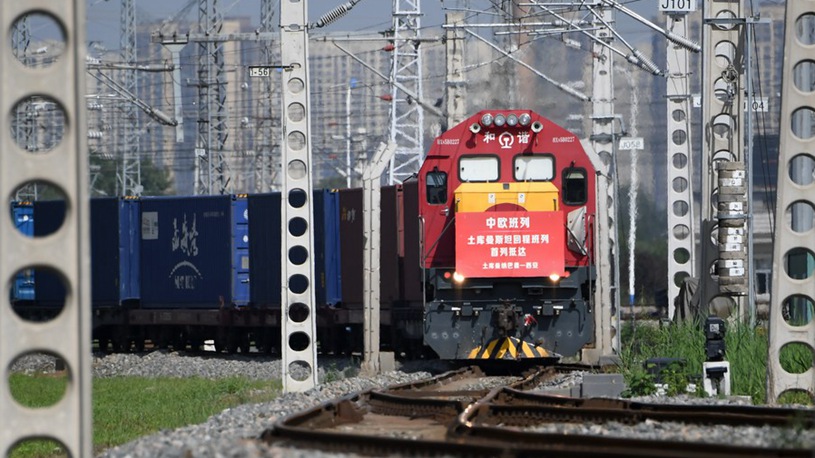World Bank warns of rising global recession risk amid simultaneous rate hikes
WASHINGTON, Sept. 15 (Xinhua) -- As central banks across the world simultaneously hike interest rates in response to inflation, the world may be edging toward a global recession in 2023, the World Bank warned Thursday.
Central banks around the world have been raising interest rates this year with a degree of synchronicity not seen over the past five decades - a trend that is likely to continue well into next year, the World Bank said in a new study.
Yet the currently expected trajectory of interest rate increases and other policy actions may not be sufficient to bring global inflation back down to levels seen before the pandemic, the study noted.
Investors expect central banks to raise global monetary policy rates to almost 4 percent through 2023 - an increase of more than 2 percentage points over their 2021 average, according to the study.
"If this were accompanied by financial-market stress, global GDP (gross domestic product) growth would slow to 0.5 percent in 2023 - a 0.4 percent contraction in per-capita terms that would meet the technical definition of a global recession," the study noted.
Ayhan Kose, the World Bank's acting vice president for Equitable Growth, Finance, and Institutions, noted that because the rate hikes are highly synchronous across countries, they could be "mutually compounding" in tightening financial conditions and steepening the global growth slowdown.
"Policymakers in emerging market and developing economies need to stand ready to manage the potential spillovers from globally synchronous tightening of policies," said Kose.
A string of financial crises in emerging market and developing economies that would do them lasting harm, according to the study.
"My deep concern is that these trends will persist, with long-lasting consequences that are devastating for people in emerging market and developing economies," said World Bank President David Malpass.
"To achieve low inflation rates, currency stability and faster growth, policymakers could shift their focus from reducing consumption to boosting production," said Malpass.
"Policies should seek to generate additional investment and improve productivity and capital allocation, which are critical for growth and poverty reduction," Malpass added.
Photos
 Park in S China's Shenzhen celebrates 19th birthday of giant panda during Mid-Autumn Festival
Park in S China's Shenzhen celebrates 19th birthday of giant panda during Mid-Autumn Festival China Fashion Week S/S 2023 concludes in Beijing
China Fashion Week S/S 2023 concludes in Beijing China-Europe freight train services see robust growth in August
China-Europe freight train services see robust growth in August Teenager from SW China's Yunnan gains widespread fame for steadfast dedication to sport of tennis
Teenager from SW China's Yunnan gains widespread fame for steadfast dedication to sport of tennis
Related Stories
- Interview: Engagement, not decoupling, remains way forward for global economic harmony, says Singaporean scholar
- Interview: GDI promotes inclusive, balanced global economic development, says Pakistani expert
- China key contributor to post-pandemic global economy: Cambodian experts
- China's share of global economy rises to over 18 pct: official
- Global economy under severe stress, development goals need urgent rescue: UN official
- Business people praise RCEP as huge New Year gift for regional, global economy
- Chaos, risks cloud U.S. in 2022, creating uncertainties for global recovery
- Global economy projected to grow by 4 pct in 2022, 3.5 pct in 2023 -- UN report
- China's WTO entry benefits U.S., global growth
- Interview: CIIE to boost global economic recovery, Argentine economist says
Copyright © 2022 People's Daily Online. All Rights Reserved.





